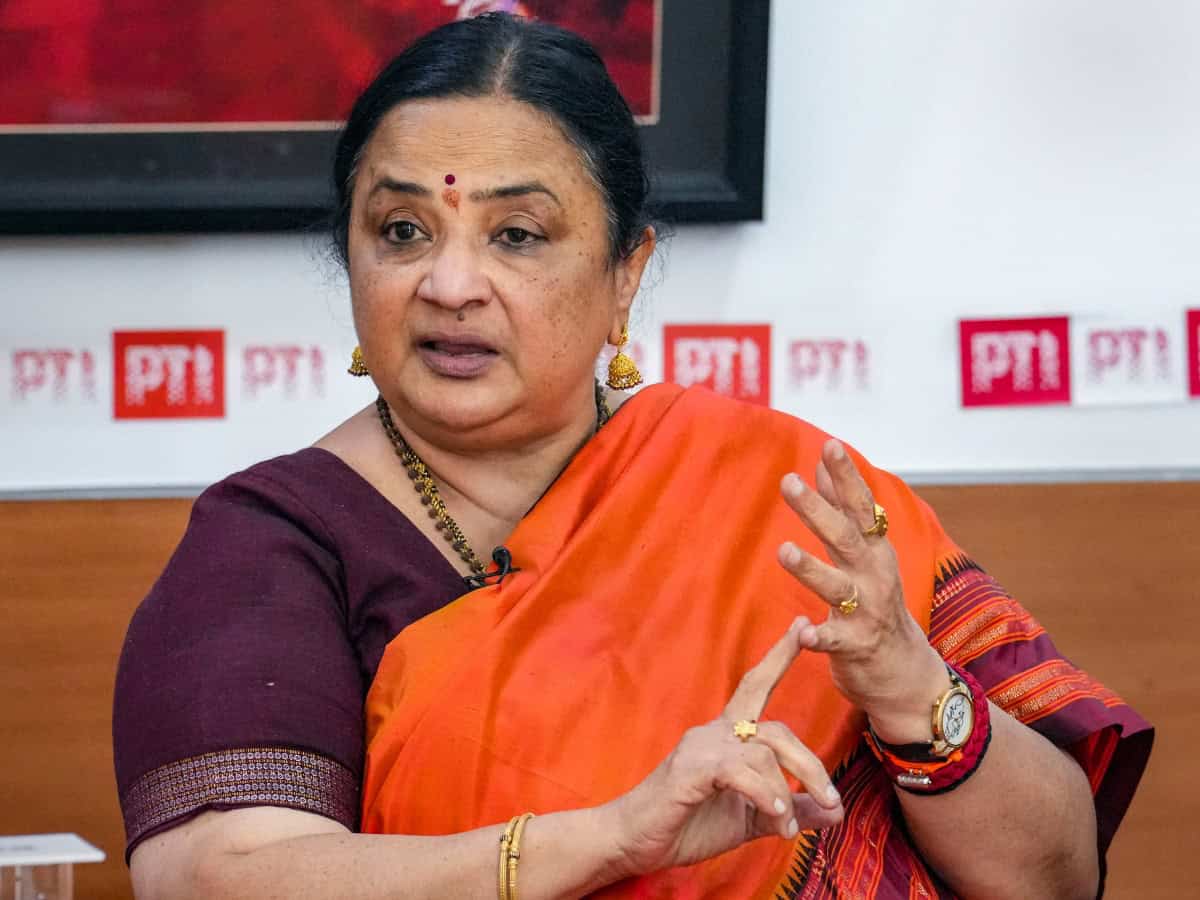
New Delhi: JNU was never “anti-national” or part of the “tukde-tukde” gang, the university’s vice-chancellor said on Thursday, asserting that the institution will always foster dissent, debate and democracy.
In an interaction with PTI editors at the agency’s headquarters here, Santishree Dhulipudi Pandit, who is the first woman vice-chancellor of the university, said the Jawaharlal Nehru University (JNU) is “not saffronised” and there is no pressure from the central government in its day-to-day functioning.
Pandit, also a JNU alumnus, however, admitted that the campus was polarised when she took over and termed the phase as “unfortunate”. She claimed that there were mistakes on both sides (students and administration) and the leadership erred in handling the situation.
She also said that neither does she regret her affiliation with the Rashtriya Swayamsevak Sangh (RSS) nor does she hide it.
Pandit, who spoke at length about her life from the time she was born in St. Petersburg in Russia to growing up in a middle-class South Indian family in Chennai, said she feels proud to be called “the Sanghi VC who brought the highest QS rankings for JNU”.
“As a university we should be above all this (saffronisation). JNU is for the nation, not for any particular identity. JNU stands for inclusivity and development and I always say that it stands for seven Ds — development, democracy, dissent, diversity, debate and discussion, difference and deliberation,” she said.
Pandit took over as the vice chancellor in 2022 when the campus was in the throes of students’ agitation and had still not recovered from the 2016 controversy over alleged anti-national slogans being raised on campus during an event. The students who were alleged to be involved in the slogan raising were branded as members of the “tukde tukde” gang.
“That was a phase when there were mistakes on both sides. I think the leadership erred on the way to control it. Any university has 10 per cent lunatic fringes. It is not only JNU. It is about the leadership, how we tackle people with extreme views… But I don’t think we are anti-national or tukde-tukde,” she said, responding to a question about the varsity’s anti-national image.
“I think that phase was bad and there were mistakes on both sides, and because of polarisation and the leadership not understanding…You have to understand that people will differ and argue. The university was never anti-national. When I studied (at JNU) it was the height of the Left domination, even then nobody was anti-national,” Pandit said.
“They were critical. Being critical and dissenting will not be called anti-national. I think the administration did not understand JNU and that was an unfortunate phase,” she added.
She pointed out that all the degrees awarded to graduates of military academies such as IMA, Naval Academy are from JNU. “Going by that logic even the Indian military will be deemed as anti-national,” Pandit.
When the 61-year-old Pandit took over she was seen by Leftist students on the campus as a representative of right-wing politics and perhaps a supporter of the view that the university is anti-national.
Pandit was born in 1962 to an academician mother who was teaching linguistics in what was then Leningrad in Russia. Her mother died soon after childbirth and Pandit was raised for nearly two years by Russian caregivers who brought her to India in November 1963 and handed her to her journalist father in Chennai.
A school topper, she cleared the medical entrance examination and joined AIIMS in New Delhi but quit after three months because she was told she would have to gynaecology or paediatrics, and not neurology. She then studied history and pursued an academic career which took her to Pune University as its dean.
Growing up in Chennai, her father, who never remarried, would send her to summer camps organised by Sevika Samiti, an RSS affiliated group.
“That is how I grew under the influence of the RSS,” she told PTI, adding that the Sangh has never taught her hatred but has had a positive influence on her life.
“I do not want to hide it. Those who are naxalites they do not hide it so why should I hide it. I have not done anything that is anti-national and I think the RSS in the south is not as politicised as it is here. I have a lot to do with the Sangh and most of my values come from there,” she said.
“I think everybody has different affiliations. For me Sangh has been a very positive influence,” Pandit said.
Asked about the allegations of saffronisation of the JNU campuses, she said that “at least in JNU we are not saffronised”.



